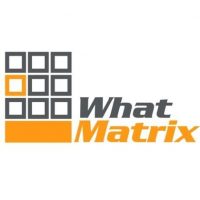|
|
|
VM |
|
|
|
VM micro (below 1 vCPU)
Details
|
1vCPU minimum

Smallest vm size is 1vCPU
|
g

|
A-series

https://docs.microsoft.com/en-us/azure/virtual-machines/virtual-machines-windows-sizes
|
|
|
VM Small (up to 8 vCPU)
Details
|
Available : Configurable mem up to 64GB

|
n-standard-8

|
D-series

https://docs.microsoft.com/en-us/azure/virtual-machines/virtual-machines-windows-sizes
|
|
|
VM Medium (up to 16 vCPU)
Details
|
Available : Configurable mem up to 128GB

|
n1-standard-16

|
L-series

https://docs.microsoft.com/en-us/azure/virtual-machines/virtual-machines-windows-sizes
|
|
|
VM Large (up to 32 vCPU)
Details
|
Available : Configurable mem up to 242GB

|
n1-standard-32

|
L-series

https://docs.microsoft.com/en-us/azure/virtual-machines/virtual-machines-windows-sizes
|
|
|
VM XLarge (up to 64 vCPU 128GB RAM)
Details
|
Max 56 core with mem up to 242GB

|
n1-standard-64

|
EV3-series

https://docs.microsoft.com/en-us/azure/virtual-machines/virtual-machines-windows-sizes
|
|
|
VM XXLarge (up to 128 vCPU 2TB RAM)
Details
|
Not available as VM (Baremetal option : per Month)

https://www.ibm.com/cloud-computing/bluemix/gpu-computing
|
No

|
M-series

https://docs.microsoft.com/en-us/azure/virtual-machines/virtual-machines-windows-sizes
|
|
|
GPU VM Large (up to 32 vCPU)
Details
|
Not available as VM (Baremetal option : per Hr / Month)

https://www.ibm.com/cloud-computing/bluemix/gpu-computing
|
n1-standard-32

GPU can be added to any instance
|
N-series

https://docs.microsoft.com/en-us/azure/virtual-machines/virtual-machines-windows-sizes
|
|
|
GPU VM XLarge (up to 64 vCPU 128GB RAM)
Details
|
Not available as VM (Baremetal option : per Hr / Month)

https://www.ibm.com/cloud-computing/bluemix/gpu-computing
|
n1-standard-64

GPU can be added to any instance
|
No

|
|
|
GPU VM XXLarge (up to 128 vCPU 2TB RAM)
Details
|
No generally available Baremetal option

https://www.ibm.com/cloud-computing/bluemix/gpu-computing
|
No

|
No

|
|
|
|
Nvidia Tesla P100, M60, K80, Grid K2 (monthly & hourly options)

https://www.ibm.com/cloud-computing/bluemix/gpu-computing
|
NVIDIA K80, AMD FirePro, Tesla P100

|
NVIDIA K80, M60, P100

https://docs.microsoft.com/en-us/azure/virtual-machines/windows/sizes-gpu
|
|
|
|
Standard config types for public VMs. Private host VMs can be configured

|
Yes

https://cloud.google.com/compute/docs/disks/performance
|
No

|
|
|
Defined disk IOPS
Details
|
Not available as local disc (available with SAN)

|
IOPS are linked with GB size of disks

|
Yes to a certain degree

IOPS can be defined using different backend disks, but one cannot configure a dedicated IOPS list --> https://docs.microsoft.com/nb-no/azure/storage/common/storage-premium-storage
|
|
|
|
Not supported

|
Yes, Intel DPDK

|
Yes, Accelerated Network

|
|
|
|
1 x public / 1 x private : Can add 1 private but no ability to add additional

|
Each core is subject to a 2 Gbits/second (Gbps) cap for peak performance. Each additional core increases the network cap, up to a theoretical maximum of 16 Gbps for each virtual machine

|
Low, Moderate, High, RDMA

|
|
|
|
No ability to add vNIC

|
Yes

|
Yes

|
|
|
Attached / detach block storage
Details
|
Limited ability with portable storage

|
Yes, can add or deattach data disks

|
Yes

|
|
|
Virtual dedicated cloud
Details
|
Virtual network created at L2 VLAN level.

|
A GCP tenant has its dedicated virtual network scope

|
Yes Virtual Network

|
|
|
|
Can assign portable public / private IPs

|
Yes

|
Yes

|
|
|
|
Image |
|
|
|
Manual snapshots image
Details
|
Supported

|
Yes, you can create a persistent disk snapshot

|
Yes

|
|
|
Scheduled snapshot image
Details
|
Not available as native service (could script through API)

|
No, only manually using CLI

|
Not available as native service

Not available as native service
|
|
|
API / CLI Snapshot image
Details
|
Supported

|
Yes using REST API or using gcloud CLI

|
Yes

|
|
|
Make image public / marketplace
Details
|
Supported

|
Yes images can be using privately or published in the Google Cloud Launcher

|
Yes Azure Marketplace

|
|
|
|
ISO & VHD imports supported

https://knowledgelayer.softlayer.com/procedure/import-image
|
Using CloudEndure

|
Yes CLI or UI

|
|
|
|
VHD image export

https://knowledgelayer.softlayer.com/procedure/export-image
|
No

|
Yes

|
|
|
|
O/S |
|
|
|
|
Windows Server 2012, 2012R2, 2016 Standard edition

|
GCP currently supports a variety of operating systems including: Ubuntu, Windows Server, Red Hat Enterprise Linux, SUSE Linux Enterprise Server, Fedora, Debian, CentOS, Gentoo Linux, Oracle Linux, and FreeBSD.

|
Microsoft Azure currently supports a variety of operating systems including: Ubuntu, Windows Server, Red Hat Enterprise Linux, SUSE Linux Enterprise Server, Fedora, Debian, CentOS, Gentoo Linux, Oracle Linux, and FreeBSD.

|
|
|
|
Redhat, Ubuntu, Debian, CentOS, Cloudlinux, CoreOS

|
GCP currently supports a variety of operating systems including: Ubuntu, Windows Server, Red Hat Enterprise Linux, SUSE Linux Enterprise Server, Fedora, Debian, CentOS, Gentoo Linux, Oracle Linux, and FreeBSD.

|
Microsoft Azure currently supports a variety of operating systems including: Ubuntu, Windows Server, Red Hat Enterprise Linux, SUSE Linux Enterprise Server, Fedora, Debian, CentOS, Gentoo Linux, Oracle Linux, and FreeBSD.

|
|
|
Bring your own OS
Details
|
Supported (at own risk)

|
Yes

https://cloud.google.com/compute/docs/instances/windows/ms-licensing
|
Yes, you can bring your own Microsoft license using HUB

https://azure.microsoft.com/nb-no/pricing/hybrid-use-benefit/
|
|
|
|
Control |
|
|
|
Resize existing VM
Details
|
Resize vCPU, memory, network speed

|
Yes

|
Yes

|
|
|
VM Live Migration
Details
|
Recovery processes not clearly defined. SLA for recovery defined (in hrs)

|
Yes, Live migration

Live migration enabled by default
|
On host failure the vm will be auto migrated to a new host (guest monitor/restart also available)

https://azure.microsoft.com/en-us/blog/service-healing-auto-recovery-of-virtual-machines/
|
|
|
|
Supported

|
Yes

|
Yes

|
|
|
|
Powering off VM does not stop billing

VM needs to be deprovisioned to stop billing being incurred
|
No, only manually using CLI

|
Yes

, can be done using Azure automation
|
|
|
Provision in less than 5 mins
Details
|
Variable - often more than 5 mins

|
Yes

|
Yes

|
|
|
Provision consistent spec
Details
|
Although host performance is up to date, there is limited view of host specification

|
Consistent VM configs available

|
Yes

|
|
|
Reserved instances
Details
|
Not available

|
Yes

|
Yes

Reserved instances still limited to EA, but allows to reserve a virtual machine with up to 82% discount
|
|
|
|
Not available

|
Yes, Preemtible VMs

https://cloud.google.com/preemptible-vms/
A preemptible VM is an instance that you can create and run at a much lower price than normal instances. However, Compute Engine might terminate (preempt) these instances if it requires access to those resources for other tasks. Preemptible instances are excess Compute Engine capacity so their availability varies with usage.
|
Yes, Azure Low Priority VMs

https://azure.microsoft.com/nb-no/blog/announcing-public-preview-of-azure-batch-low-priority-vms/
|
|
|
Dedicated host (Single tenant)
Details
|
Dedicated host & dedicated Instances (pay per VM) available

https://www.ibm.com/cloud-computing/bluemix/virtual-servers
|
No

|
No

|
|
|
VM to host affinity (network optimised)
Details
|
Available on didicated hosts

https://www.ibm.com/cloud-computing/bluemix/virtual-servers
|
Yes

Networking is built from scratch and is the best of the different vendors
|
Yes

|
|
|
VM to host anti-affinity
Details
|
Available on didicated hosts

https://www.ibm.com/cloud-computing/bluemix/virtual-servers
|
No

|
Yes, Availability Groups

|
|
|
Autoscaling VMs (within AZ)
Details
|
Supported (within DC)

|
Yes, Instance Group

https://cloud.google.com/compute/docs/instance-groups/
|
Yes

|
|
|
Autoscaling across AZs/Regions
Details
|
Not available

|
No, not across regions but across AZ

Regional Managed Instance Groups
|
No

|
|
|
|
Block storage |
|
|
|
|
Available (25GB & 100GB primary drive)

|
Yes

|
Yes, Standard Managed Disk or Standard Storage

|
|
|
|
Yes ability to define local storage (as SSD)

VM hosts have been upgraded to SSD based, however limited visibility when ordering. SAN based VM disks do not have SSD option, howevere additional Block and File based storage options with SSD (defined by IPS) are available https://www.ibm.com/blogs/bluemix/2016/11/intel-optane-ssd-testbed/
|
Yes

SSD options, both at SCSI or NVMe
|
Yes, Premium Storage

|
|
|
|
Available (25GB & 100GB primary drive)

|
No

|
No

|
|
|
Encryption at rest
Details
|
Not available on VM drives (only on additional attached storage)

https://www.ibm.com/cloud-computing/bluemix/block-storage
|
Yes

|
Yes

|















